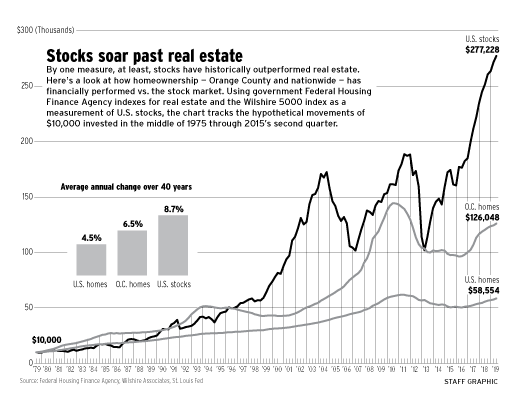How Valuable is Your Time? (Personal Side)
How valuable is your time? How valuable would you feel if you had more time to devote to your hobbies and interests? Essentially, the value of your time is the market price of the product or service you would create if you were to spend that time on the market? You can use this value to prioritize what matters most to you and to calculate how valuable your time is. Here are three ways to make your time more valuable:
Prioritize the things that matter most to you
It may seem hard to decide what is most important, but a few simple steps can help you sort through the chaos and get clear on your priorities. A clearer perspective can bring new focus, energy and excitement to your life. When you know what you want most, you can accept the boundaries of your time and energy and make the most of them. Prioritization is a process, not a destination.
Creating a priority list may feel like a daunting task, but once you master the art of prioritizing, you’ll soon find yourself doing it with ease. To ensure you get the most out of your priorities list, be sure to keep your list fresh and easy to remember, and use it as a guide for your daily activities. For more help, sign up for my free weekly tips on simplifying your life. And don’t forget to sign up for my Priorities Assessment Worksheet, where I’ve detailed some of my own tips for prioritizing your life.
Once you have a clear idea of what is most important, you can check with yourself and others to see what’s most important to you. Once you have a clear sense of what your priorities are, you’ll find it much easier to concentrate on them and give your best effort to them. Once you’ve mapped out your priorities, saying no to distractions will be much easier. You’ll be able to avoid wasting your time on unnecessary activities and instead focus on the things that matter most to you.
Calculate the value of your time
Regardless of your business model, calculating the value of your time is an important exercise. In this article, we’ll discuss four factors that affect the value of your time. First, your income and level of frugalness play a part in the calculation. Second, your level of busyness and overwhelm play a role in the calculation. Once you know your time value, you can decide which tasks are worth spending your time on.
If you want to maximize the value of your time, you should start by calculating the amount of money your time is worth. An hourly rate of $20 is an example of how much a person can charge for their time. But if you work 2,000 hours a year, your time is worth $100. That’s a good baseline value. In addition, you should charge for extra time to make it more valuable.
When you’re a manager, the value of your time is different from that of a worker. As the deadline approaches, you might be able to take advantage of more non-revenue-generating activities, such as team bonding. However, your time becomes more valuable as the deadline draws nearer. For this reason, managers want to feel that each minute counts for something. This way, they can compare how much time they have left to finish the break-in time to the deadline.
Demonstrate the value of your time
One way to demonstrate the worth of your time is to offer something for free. People who spend an hour in line at a fast food restaurant may not understand the value of their time. When a famous chicken sandwich chain gave away free sandwiches, people lined up for over an hour just to get a free sandwich. The people who stood in line valued their time at $3.99 an hour. That’s a high value for a free sandwich.
Using time valuation to measure the value of your time can help you make important business decisions. It will help you decide how best to allocate your time, whether to outsource or delegate certain tasks to others. Time valuation is a complex calculation, and the value will vary widely depending on your position, type of work and your projected earnings. Once you calculate the value of your time, it will be easier to determine whether or not it’s worth paying yourself to earn more.
Join The Personal Wealth Creation (PWC)™ – Launching (50% Discount)
Learn How to Develop Wealth at a Personal Level.
On the Personal Wealth Creation, you will learn:
- Beliefs of The Multi-Millionaires
- How the Wealthy Manage their Money
- How to Increase Your Income
- How to Manage your Money & Reduce Your Expenses by 20-35%
- How to Build a Fortune by just Investing 15% of Your Income
- How to Design Your Millionaire Master Plan
- And Much More…
How to Calculate the Time Value of Money (Financial)
The Time Value of Money is a widely accepted conjecture. It is the implication of a later-developed concept, time preference. However, despite being widely accepted, its implications are not always clear. Fortunately, there are a few simple examples of how to calculate the time value of money. Listed below are several examples of this concept. How do you use it? Read on to learn more! Once you have a basic understanding of how it works, you can start using it to make better financial decisions!
Calculate the present value of future cash flows
Using a calculator to estimate the future value of an investment is a useful financial tool. In this financial tool, the future value of cash flows is discounted using the discounting formula, which accounts for the time value of money. The higher the discount rate, the lower the present value of future cash flows. The calculator works in both cases. The example below illustrates how to calculate the future value of a fixed cash flow.
To use a calculator, enter the dates and interest rates for both the current and future value of the cash flow. You can also enter the initial investment amount, if applicable. The present value factor will be the intersection of the future value and the initial investment cost. A total present value of the future cash flows is computed, once the initial investment is deducted. The calculator also allows you to include the initial investment amount.
The discount rate you use should be appropriate for your situation and the cash flows you want to estimate. The lower the rate, the higher the present value. Depending on the rate you decide to use, the value of the investment will increase or decrease. Regardless of the rate, make sure you consider the future cash flow value when estimating the present value. There are many advantages to knowing how to calculate the future value of cash flows and how to use them.
If you wish to estimate the future value of a project, you can use the discounted cash flow technique. Discounted cash flow helps you calculate the future value of your investments. It is an effective method for estimating the value of acquisitions and determining the required rate of return on an investment. It’s important to note, however, that you should never set unrealistic rates of return. When using this method, make sure you understand the nuances of the discounting method, as well as the risks and rewards associated with the project.
In addition to using the tables from Appendix B, make sure to round your answers to the nearest cent. A simple example is a college savings plan. You need to determine how much money you’ll have to save after 12 years in order to cover the cost of college. The bank would return 5% on your savings, but you’ll need to pay $1,000 a year for 8 years to fund it. This investment option is suitable for both scenarios.
Compute the opportunity cost of spending now versus later
You can’t just pick a thing and spend it; you have to weigh the benefits and disadvantages of both. For example, if you spend $4.49 on a coffee each day, you can get other things for that money later. But if you decide to go on a vacation, you can’t just spend $4,500 on a five-day cruise. That money could go towards a different trip. To be able to compute the opportunity cost of spending now versus later, you have to understand the concept.
Before you make any decision, ask yourself this question: “What alternatives will I miss?” Always consider the alternative and consider the better options. Taking into account the opportunity cost is essential. After all, without it, you might end up making the wrong decision. If you make the wrong decision, it may cost you more than what you planned. That’s why you have to assess your situation carefully, and account for it.
Another example of how to calculate the opportunity cost of spending now versus later is with investment. Consider two options that earn you $50 and $20 respectively. If you make a $20 return now, then you will lose out on a higher return later. Similarly, if you put your money into a higher yielding investment, your opportunity cost would be -$30. And if you invest your money in an investment that gives you an 8% return, it would be a better option than putting your money into a low-yielding investment.
The idea of opportunity cost is to compare the benefits and disadvantages of two options. You can make a better financial decision based on this concept. If you have a $100 investment in a winter coat, you could have spent that money on a summer wardrobe instead. However, if you spend that money on an ad campaign, you could earn $70,200, or even more. Moreover, you will get 30 more customers from your campaign. The difference in revenue will help you calculate the opportunity cost of spending that money.
Calculate the time value of money
The term “time value of money” describes the fact that money today does not necessarily have the same value as it will in the future. Inflation is the most obvious example of how time changes the value of money. In 1991, a certificate for $150 of free gasoline would have bought more gallons of gas than it would have if it were given to the same person ten years later. A few decades later, that same certificate would be worth 110% more than it did then.
One way to calculate the time value of money is to use an online calculator. You can use a calculator to determine the present value of a dollar, as well as its future value, and you can also calculate the interest rate and the number of compounding periods required to cover a loan or increase a deposit. You can easily find these tables online and print them out or save them into an Excel spreadsheet. The tables summarize the factors of the time value of money, including interest rate and the number of years the money will be worth.
The time value of money is a crucial concept in financial accounting. This principle allows you to evaluate financial risks and opportunities, and it is the basis of nearly every financial decision you make. It is also a helpful concept for businesspeople, since it will allow them to make better decisions regarding future investment. By understanding the time value of money, you can make more informed decisions on how to spend your money. You will be able to make better decisions with regards to your career, as well as how much you’re willing to invest in different opportunities.
The time value of money is another important concept in financial planning. You’ll want to know whether you’ll spend your money now, or wait until the future to do so. If you have money in the present, you can spend it right away, but if you wait until the future, it will lose its value and interest. Therefore, you’ll want to take into account the risks and compounding interest when planning your financial future.
Compounding
Inflation, liquidity, and risk are all factors that contribute to the concept of compounding the time value of money. These factors can help businesses make better decisions regarding future investments. A simple example is interest. If you deposit $100 today, it will increase in value to $110 after a year. By compounding interest over several years, you can increase your money’s value even more. The formula also considers the amount of time your money has to earn interest.
The time value of money is a powerful concept in finance. Warren Buffet, the world’s most successful investor, attributes his success to living in America, his lucky genes, and compound interest. Time Compounding is a fundamental concept of finance that affects all of our financial decisions. Investing in the future can create a wealth you’ll be glad you made. If you’re able to invest in the right investments, you can enjoy life’s little pleasures.
The time value of money can be modeled graphically with the help of an interest calculator. The interest rate, which is the percentage increase in cash amount over a period of time, is calculated using an annuity. The term “annuity” comes from the Latin word annum, and is applied to any stream of equal payments. For example, if you want to invest $100 in a bank account for 30 years, you can set up the calculation by multiplying the future amount by the discount factor. The difference is the amount of interest that you will earn over the course of a month, quarter, or year.
Using a financial calculator is a great way to calculate the time value of money and the number of compounding periods needed to amortize the loan’s present value. It’s also possible to use spreadsheet applications such as Microsoft Excel to solve a time value of money problem. One of the most popular programs for solving time value of money problems is Microsoft Excel, which allows you to use built-in financial functions to solve your problems.
Join The Professional Stock Investing (PSI)™
Learn How to Develop a Million Dollar Stock Portfolio
On the Professional Stock Investing, you will learn:
- Invest in Winning Stocks That Generate High Double-Digit Returns
- Identify Market Uptrends and Downtrends Accurately
- Hedge and Protect Your Portfolio from Market Crashes
- Manage Your Risks and Maximize Your Returns
- Develop the Psychology of a Disciplined Investor
- Build a Winning Portfolio That Suits Your Investment Goals
Helpful Links:
Homepage
About
Contact
Personal Development Partner




